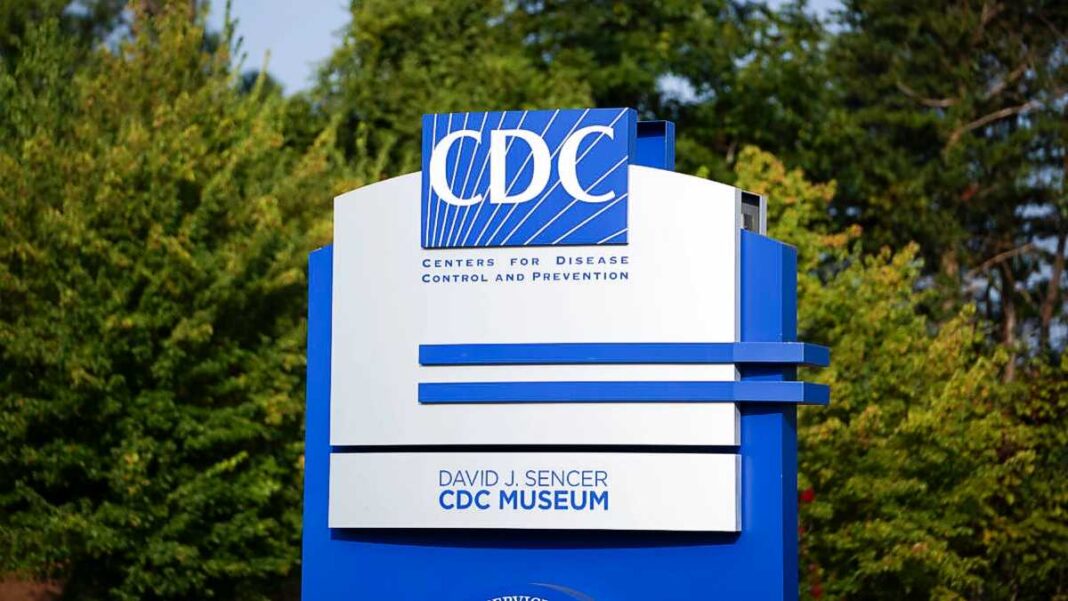It is always with the best intentions that the worst work is done.
–Oscar Wilde
Oscar Wilde was known for exaggeration, and the above comment is no exception. But even with the best of intentions, we sometimes inadvertently create problems for ourselves. John Maynard Keynes once quipped:
“Practical men who believe themselves to be quite exempt from any intellectual influence, are usually the slaves of some defunct economist. Madmen in authority, who hear voices in the air, are distilling their frenzy from some academic scribbler of a few years back.”
Often, it’s just a function of how we look at something. When we focus, we narrow the scope of our inspection. This can bring issues into specific relief, but it also moves other concerns to the periphery of consideration. We focus excessively on one issue to the detriment of another. Those who study and practice the soft science of economics can fall victim to this. Given the importance of economics in our society, its effects can sow repercussions far beyond those responsible for its application.
Two Classes of Economists
The noted economist John Kenneth Galbraith once remarked:
“We have two classes of economists, those who don’t know . . . and those who don’t know they don’t know.”
I can only presume that with respect to his colleagues, such a celebrated economist as Galbraith possesses insight beyond me, but there is another way of looking at it.
There are those scientists interested in academic research (academic economists) and those interested in policy matters (political economists). While each serves a different purpose in American society, they also have different orientations about how they think and thus ‘do’ economics. And that means you get different interpretations of “the facts” and thus different outcomes about what is and is not “the truth.”
There are differences of opinion about the benefits or otherwise of each “type” of economist. But the critique has become particularly pronounced recently regarding those in the “ivory towers.” This essay will demonstrate how postmodernism and its cousin (modern liberalism) gives rise to more economic problems than solutions in America, and why ameliorating such effects are critical to our society.
Modern Liberal Ideology
An often cited criticism of economic academic research and its purveyors is that they are too ideological. Academic economists like the American Paul Krugman and the French scholar Thomas Piketty are often accused of pushing a modern liberal “agenda” through their economics. My concern in this essay is with the “modern liberal academic,” and why some of them are beginning to join the chorus of self criticism.
An informative work, Good Economics for Hard Times (2019) by Abhijit Banerjee and Esther Duflo is on point for our discussion:
“We, the economists, are often too wrapped up in our models and our methods and sometimes forget where science ends and ideology begins.”
Banerjee and Duflo argue that many academic economists produce research that is not relevant to American policy concerns. They assert that the real value of “good economics” is in how well it applies to real policy issues–for America. And this brings us to the problems modern liberalism has created for us by being too focused on one issue to the detriment of another.
For decades academic economists have been focused on two issues: immigration and globalism. Their reasoning was that increased immigration will solve the reduced natality problem in America while also stimulating GDP growth and global trade through lower labor costs. The modern liberals behind this agenda were short sighted. In attempting to cure one ill, they created another.
The proverbial double–edged sword is in play in America; immigration and globalism both solve and create problems for us. They have, in concert, imposed a huge unacknowledged burden on ordinary people. Moreover, more economists who previously supported these academically driven policies of modern liberalism are changing their minds.
“I used to subscribe to the near consensus view among academic economists that immigration to the US was a good thing,” wrote Nobel Laureate Angus Deaton in an IMF post “Rethinking My Economics” March 2024. Now he sees the effect of modern liberal policy over the long term, and he no longer likes what he sees.
In his new book, Economics in America (2023), Deaton argues (and supplies the supporting data) that economists must get back to serving society. He and other economists realize that, in hindsight, facts tell a different story than originally thought. The data reveals something striking about equality in America. Inequality was high when America was advocating immigration but was much lower when the borders were more regulated. Then it spiked again with passage of the Immigration and Nationality Act of 1965. The number of foreign-born people in America increased to levels not seen since the Golden Age of American prosperity (1870s-90s).
Immigration, of course, is not the only issue creating solutions as well as problems for America. There is the issue of global free trade, in other words–globalism. The latter is a political expression created by modern liberals designed, perhaps, to propagandize the “economically uninformed” (which includes most of us). I say this because there is no such thing as free trade. Deaton explains in his IMF expose:
“Those of us who remain economically libertarian can no longer defend the idea that the harm done to working Americans by globalization was a reasonable price to pay for global poverty reduction merely because workers in America are so much better off than the global poor.”
It seems that the modern liberals who had supported increased immigration in America (as was the case with Barack Obama and is the case with Joe Biden) grossly erred and underthought their ethical judgments about trade-offs between domestic and foreign workers. We may, because of America’s unrivaled wealth, of course, have some degree of responsibility to aid those in distress, but contrary to modern liberalism, we also have a fundamental obligation to our fellow U.S. citizens that, frankly, we do not have to others. Moreover, whatever duty we have to others, it need not be effected at the expense of America’s working class whose toil and ingenuity helped get America in the position of being able to help others.
Angus Deaton is an English-born, retired academic economist. One of his major accomplishments was naming the unrecognized rise in early deaths among discarded Americans as “Deaths of Despair.” His 2015 invention and explication of the term has been instrumental in helping politicians and the “rest of us” understand why so many Americans are dying at young ages.
History shows us that when immigration is curbed (as it was from 1920s-1980s there were clear economic gains for ordinary Americans. Moreover, it can be plausibly argued that the Great Migration (in the post World War I era of more than 6 million Americans of African descent from the rural South to the factories in the North) would not have happened if factory owners had been able to hire the European immigrants they preferred and actively lobbied for, politically (https://www.archives.gov).
The problem with economics has less to do with “the numbers” and more with the politics about those numbers. Thus, the problem has more to do with the political views of who is teaching economics and how those views influence what is taught. The problem with economics is not the confusing nature of the science, it is, rather, the scientist–the “academic economist.” The latter are a product of postmodernist professors of the ’60s, ‘70s and ‘80s. And these students became the modern liberal economists of today.
I once asked a group of my philosophy students if they knew what it meant to be postmodernist: one replied that it’s when you put everything in quotation marks. It wasn’t such a bad answer. Concepts such as “reality, truth, objectivity and justice” are viewed through the lens of relativism. With postmodernism nothing is certain– truth is subjective–it’s whatever you say it is.
It is modern liberals (contrary to what they espouse and teach) who focus on economic efficiency while paying lip service to the notion of fairness or civic responsibility. Quantifiable efficiency is important in economics, but academics exalt it over other ends.
When efficiency comes with redistribution of income at the expense of the bottom 50% of income earners, recommendations of academic economists become a justification to just accept inequality and civic irresponsibility. Inequality becomes a structural problem embedded into an accepted way of doing economics. Modern liberals don’t seem to get that.
John Maynard Keynes, a staunch supporter of fiscal spending for social programs, was by no means an economic libertarian. He tirelessly advocated for stronger financial policy solutions to economic problems rather than monetary ones. But his understanding of what economics is and how it should be taught to students has great merit and should be revisited and implemented through pedagogy as well as politics.
Keynes wrote that the problem of economics is to reconcile economic efficiency, social justice, and individual liberty. Modern liberals advocate for redistribution of income, but they do so without assessing the damage it does to the issue of equality in America–and those most affected–the people.
The economic data is clear, and many academic economists are beginning to see this. Inequality in America cannot be redressed by modern liberals creating socioeconomic problems and then attempting to redress the damage by creating new laws (i.e. positive rights) which give special treatment to one group of Americans at the expense of others.
Yes, mathematical models have helped make American enterprise more efficient, and the libertarian element in economics advances liberty. Social justice, on the other hand, gets trapped, squeezed, in the middle so to speak. It is frequently an afterthought in developing economic policy, even though modern liberals constantly talk about redressing social inequality.
Social justice is something modern liberals deal with only after they focus on immigration and globalism which both solve and create problems in our society. At that point it is no longer a pedagogical problem–it is a political one. And the latter are neither easily nor timely solved.
Modern liberalism’s over emphasis on global markets and immigration as being the means through which our economic problems can be solved distracts us. It has diminished our sense of the importance of influencing the political landscape to change the “rules of the game” so that all have access to “drink from and contribute to the spring of American prosperity.” We cannot solve one problem while creating another. That approach zeroes out any possible gains for ordinary Americans.
America’s modern liberal elite in general, and America’s future college graduates in particular, must begin to have some perspective regarding what Keynes was talking about. Economics should attempt to reconcile economic efficiency, social justice, and individual liberty, without sacrificing one for the other, without squeezing the middle, without taking liberty, equality and justice…
…and putting quotation marks around them.







